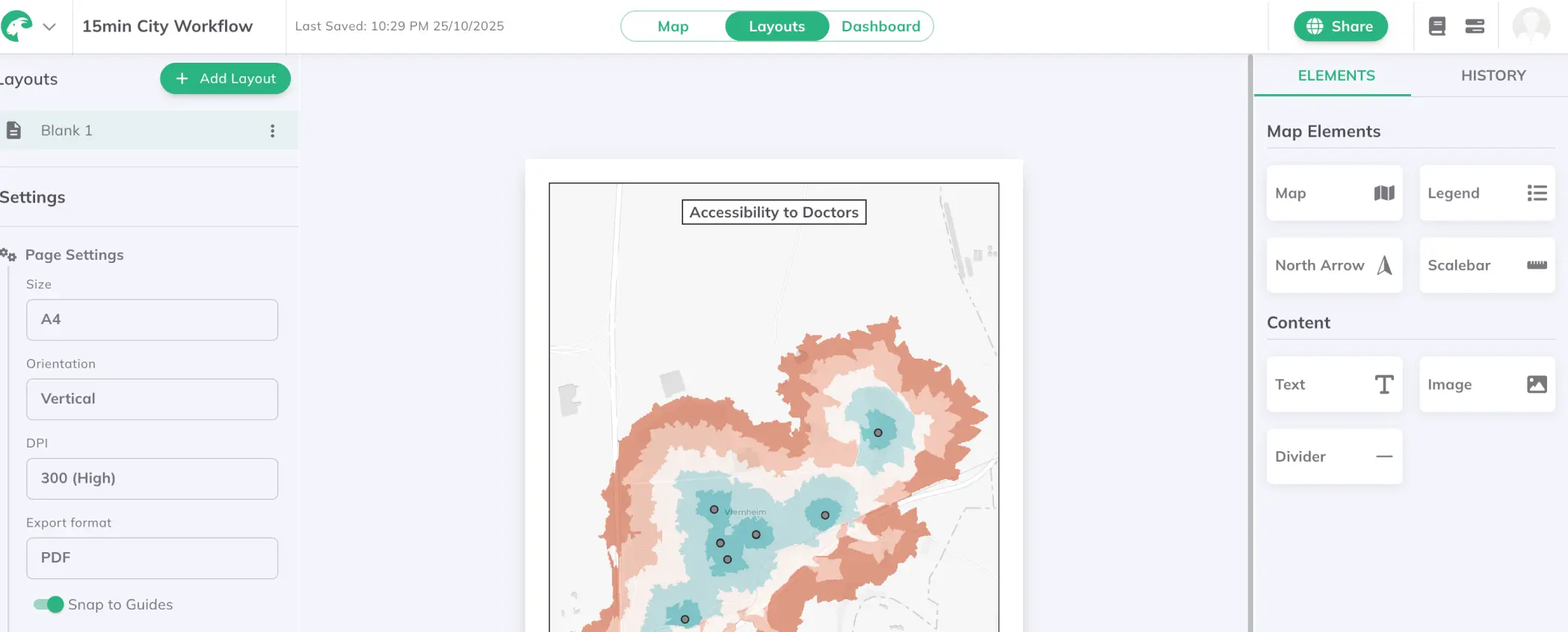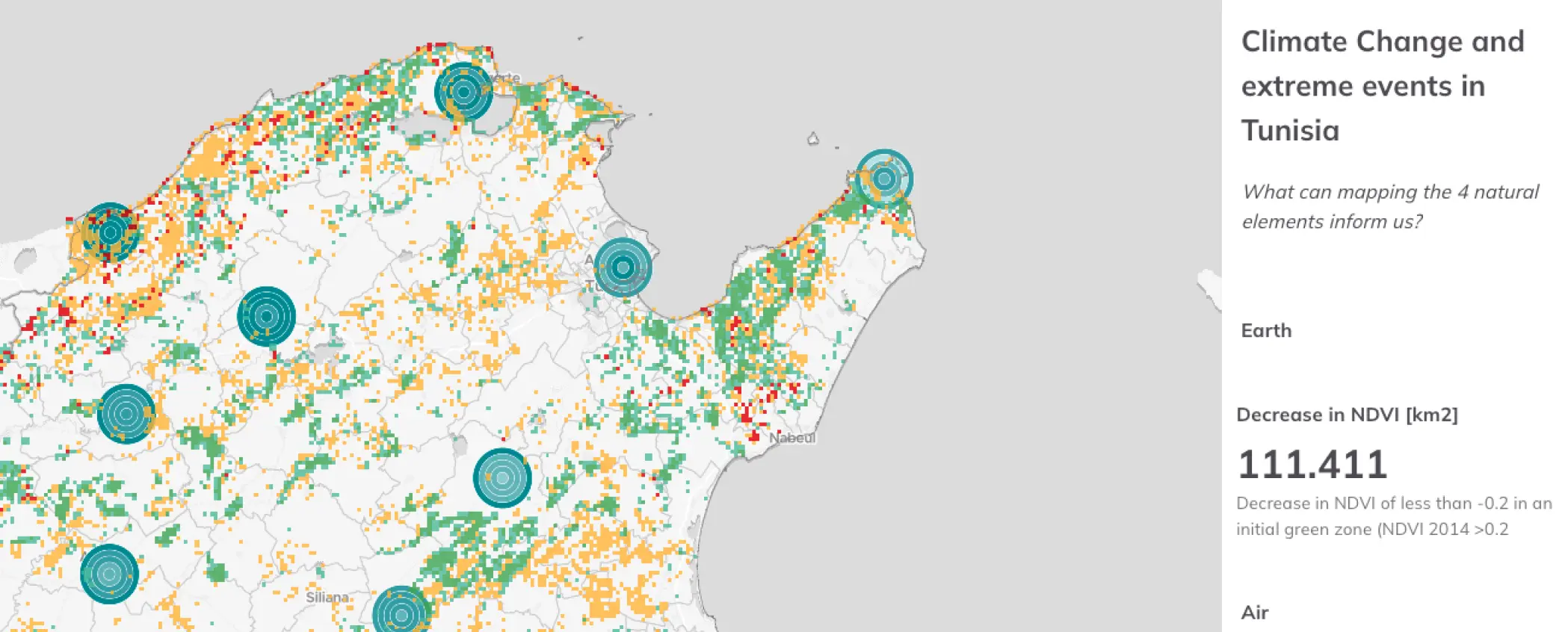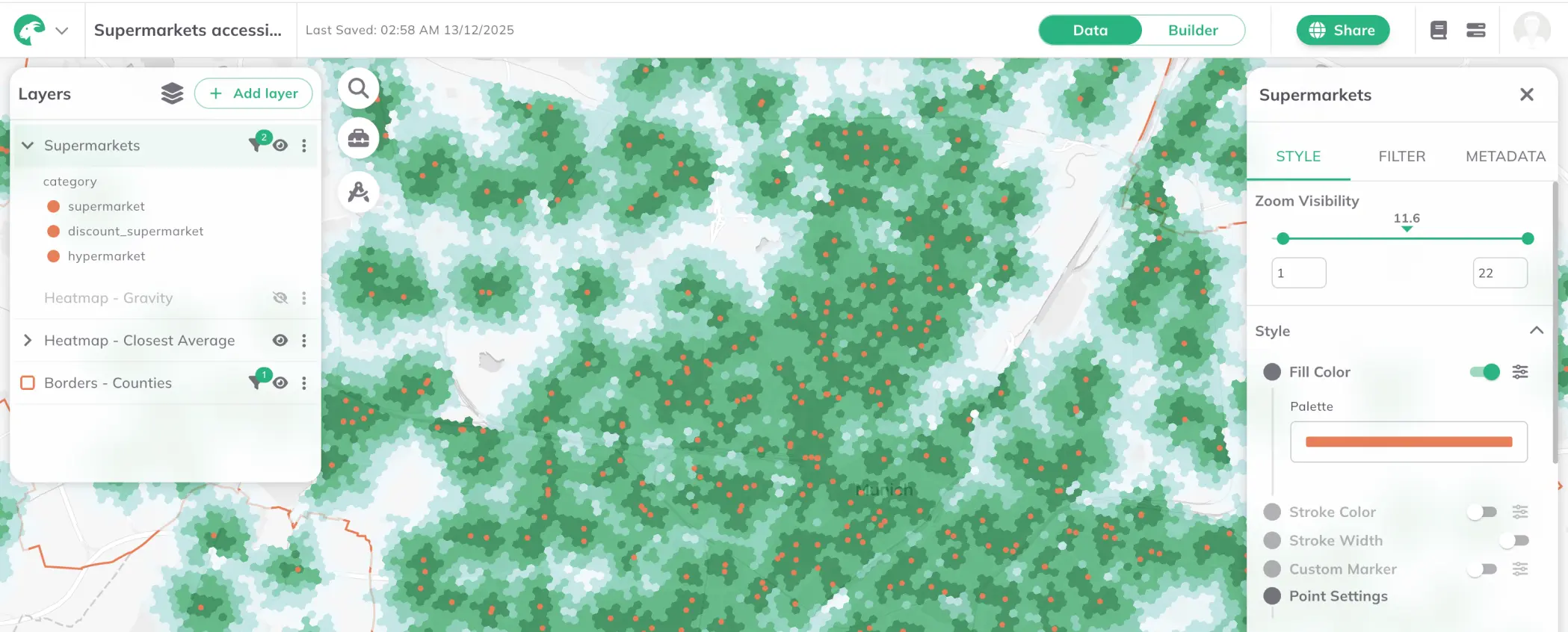GOAT

In times of growing urban populations and increasing traffic volumes, sustainable mobility solutions are indispensable. Reducing the number of parking spaces plays a central role in minimising land consumption and promoting environmentally friendly forms of transport. Innovative mobility concepts and accessibility tools such as GOAT support planners in minimising the need for car parking spaces and creating a sustainable transport infrastructure.
In cities such as Munich, Mainz, Oberursel and Würzburg, innovative parking space statutes enable the reduction of car parking spaces through the implementation of future-oriented mobility concepts. This is especially possible if a well-developed infrastructure for walking and cycling, an attractive public transport system and other mobility options such as car sharing or e-mobility are available. A functioning public transport system and short distances to important everyday destinations form the backbone of a successful mobility concept (StMB 2022).

The Foundation “Lebendige Stadt” has developed a universally applicable formula for estimating car ownership that can be used in the preparation of neighbourhood-based mobility concepts (Stiftung Lebendige Stadt 2021). This formula takes into account various parameters such as characteristics of the residential environment, public transport services, accessibility to destinations for daily needs and characteristics of the expected resident population. The application of this method enables the determination of the necessary parking space requirements for new developments and the development of measures to reduce them.
Accessibility analyses are an important part of planning mobility concepts in order to evaluate public transport services and the proximity to important everyday destinations. The planning tool GOAT is an innovative tool available throughout Germany (and beyond) that provides comprehensive data sets and functions for accessibility analysis. GOAT can be used to determine the input parameters for the parking demand formula and to evaluate the impact of potential measures.
With the help of GOAT and the formula for calculating the car stock, various scenarios can be developed to sustainably reduce the parking space ratio in urban areas. Measures such as the improvement of public transport connections, the expansion of attractive cycling facilities and footpaths, or the implementation of sustainable mobility offers such as car sharing and electric mobility can be used.

By using GOAT, urban planners and transport experts can analyse the impact of these measures and thus make data-based decisions to make the mobility offer more efficient and environmentally friendly. Furthermore, the tool allows to monitor the success of the implemented measures and to make adjustments, if necessary, in order to achieve the targeted parking space reduction goals. All in all, innovative mobility concepts and tools like GOAT offer promising opportunities to reduce land consumption by car parking spaces and to create a sustainable, environmentally friendly transport infrastructure that meets the needs of the population.
Do you also want to perform accessibility analyses with GOAT or are you interested in further information? Contact us or try the free GOAT demo!
Stiftung „Lebendige Stadt“. 2021. „Pkw-Besitz im Wohnungsbau: Eine Handreichung zur Ermittlung flexibler Stellplatzschlüssel“.
StMB. 2022. „Mobilitätskonzepte in neuen Wohnquartieren“.

GOAT

Use cases

GOAT
.png)
.jpg)
.jpg)
.jpg)
.jpg)




Whether you need state-of-the-art GIS technology, extensive datasets or expert advice – we are ready to help you shape a sustainable and liveable future for our community.